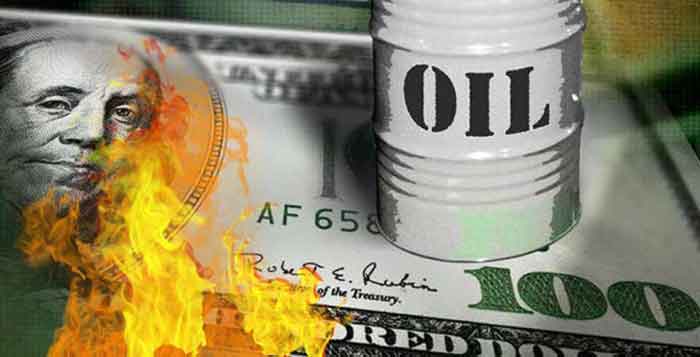It’s coming the trembling OPEC meeting

A fractured OPEC is meeting later this week to discuss a deal to cut oil production—yet again—to rebalance the market and lift oil prices that have recently slipped to below most of the cartel members’ budget-balance points.
OPEC needs a unanimous vote to pass decisions such as curtailing production. Yet, Iran—one of OPEC’s biggest producers but also one of the most sidelined members in recent months—warns that the group is unlikely to reach an agreement on a sizeable cut of around 1.4 million bpd as some are suggesting. Such a failure to act decisively would send oil prices plunging to $40 a barrel, Iran’s OPEC Governor Hossein Kazempour Ardebili told Bloomberg in an interview.
Iran has repeatedly expressed frustration with the Saudi/Russia-led increase in oil production since June to offset what was expected to be a steep decline in Iranian oil supply with the U.S. sanctions on Tehran’s petroleum and shipping industries.
Iran’s oil exports indeed dropped by some 1 million bpd, but they are likely still holding onto above 1 million bpd, while U.S. waivers to eight Iranian customers allow buyers to continue purchasing oil at reduced volumes until the end of April next year.
Oil prices have plunged by around 30 percent from early October as the market started to fear an oversupply is building up again, due to record high production in Saudi Arabia and Russia, and an all-time high oil output in the United States, coupled with fears of slowing economic and oil demand growth.
Iran, for one, will not take part in any cuts while there are U.S. sanctions on its oil, Kazempour said, adding that those who increased production should be the ones to cut, that is the Saudis and Russians and few Arab Gulf states like the UAE and Kuwait.
While the general framework between OPEC and non-OPEC may be in place, Saudi Arabia will have to appease growing frustration at smaller members within OPEC and convince them to fall in line, in order to get a unanimous vote on some sort of production cuts, which may not even be worded as ‘reduced output’.
Days before the December 6-7 meeting in Vienna, Qatar surprisingly announced on Monday that it would be quitting OPEC as of January 1, as it focuses on natural gas.
According to Iran’s Kazempour, Qatar is not the only one frustrated with OPEC’s recent decisions, especially the ones taken by the Saudi-Russia co-chaired Joint Ministerial Monitoring Committee (JMMC).
“There are many other OPEC members frustrated that the JMMC is deciding on production unilaterally and without the required prior consensus of OPEC,” Kazempour told Reuters.

